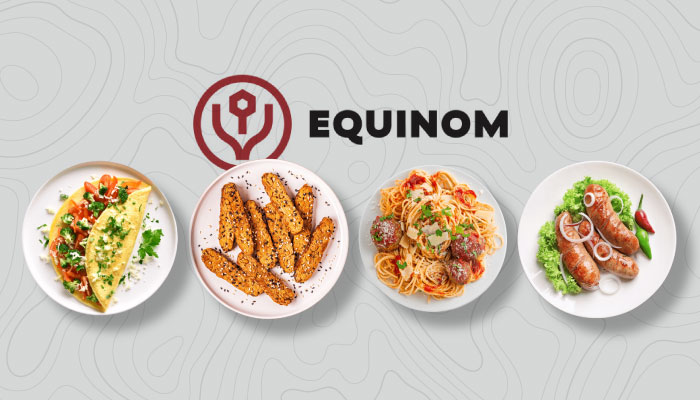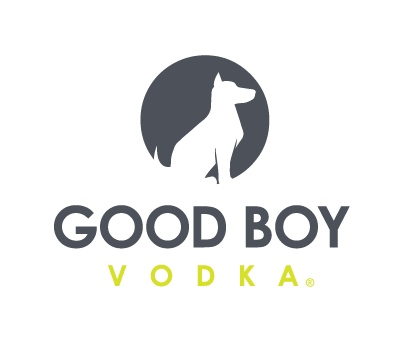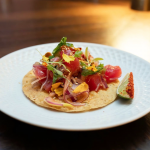The Checkout: Equinom Raises $20M; LiveKindly Collective Launches First In-House Brands in China
Welcome to The Checkout: an express lane for the weekly news you need to know, always 10 items or less.

Plant-Based Food Tech Company Equinom Raises $20 Million
Plant-based nutrition company Equinom announced this week it has raised $20 million in a funding round led by Phoenix Insurance, with participation from Fortissimo Capital, BASF Venture Capital, Trendlines Group and Maverick.
The company, based in Israel with a subsidiary in the U.S., uses non-GMO breeding methods to “maximize the genetic potential” and boost the nutrition of crops like sesame and legumes. It said it will use the new funding to expand sales, marketing and research and development as it grows its reach internationally. The funding round follows a $10 million capital raise in February 2020 led by BASF Venture Capital.
“With this capital vote of trust from investors, we now have the ability to unleash our products in the market and become a global leader in the agtech space,” Equinom founder and CEO Gil Shalev said in a press release.
Founded in 2012, Equinom helps food brands “turn regular food into super food” by custom designing seeds that are tailored to local climates to provide more convenient sourcing for brand partners. The company, which operates 100,000 acres of land across five continents, uses AI technology to breed and grow seeds with superior nutritional profiles, working to address the process of “yield-focused breeding.” Its AI database also helps match brands with non-GMO ingredients and Shalev said he hopes brands will use it in a similar way to Google.
The new funding will also help Equinom build off its previous brand partnerships and bring a new product to market later this year. Last year, Equinom partnered with Pepsi-owned hummus maker Sabra to develop a sesame seed optimized for use in tahini that could be grown in the U.S, where Sabra said sesame seeds had not previously reached the standard for use in its products. It is also collaborating with Mexican seed producer Dupasa to create a high protein sesame seed.
In 2018, the company received a $4 million investment from French plant-based protein company Roquette and its shareholder Fortissimi Capital to develop high protein pea varieties, and the company plans to launch its first batch of its high protein Smarter Pea Protein concentrate in the fourth quarter of 2021.

Cuisine Solutions Recalls JUST Egg Bites
Virginia-based food producer Cuisine Solutions issued a voluntary recall of its plant-based JUST Egg sous vide bites after finding that a limited number of 8.4 oz. two-pouch packs of the products contained undeclared whole egg and milk products. The recall affects all four flavors of the products.
According to the company, the recall affects approximately 80,632 retail boxes distributed nationwide with “Best Before” dates from February 22 to April 9, 2022. Only one pouch containing egg and milk products has been identified, with no adverse reactions reported. Cuisine Solutions is currently working with distribution partners to remove all affected products, according to a press release issued by the company.
Eat Just announced the partnership with Cuisine Solutions, a sous vide foods specialist, in January to develop and produce its plant-based egg bites globally, with the products first hitting the freezer section of retailers in March. Cuisine Solutions also produces its own line of Sous Vide Egg Bites made with cage-free eggs.

LiveKindly Launches Two New Brands Aimed at Gen Z in China
Plant-based start-up platform LiveKindly Collective is continuing its mission to make plant-based eating the “new norm” internationally with the launch of two new brands in China: Giggling Pig and Happy Chicken. The brands are the first to be developed in-house by the company and are manufactured locally in China, offering seven plant-based takes on Chinese dishes such as dumplings and a seasoned minced dish. Headquartered in New York with several international offices, the company has also opened an office in Beijing to support the launch.
Both brands, which debuted in China today, are targeted at Gen Z consumers, with the company hoping to build on the country’s history of plant-based eating.
“China has a long history in plant-based cuisine and has been cooking with ingredients like seitan, tofu and tempeh well before it was mainstream,” said Joanna LiuQiao, Regional Director, Greater China at LIVEKINDLY Collective. “We understand what works and doesn’t work for this market, and our new brands are delicious, high-quality and tailored to local consumer tastes.”
The new brands join LiveKindly’s portfolio of five plant-based brands, including the Netherlands-based The Dutch Weed Burger which the company acquired last week. With a goal to be “one of the world’s largest plant-based food companies,” China represents a “key pillar” of LiveKindly’s growth strategy, CEO and chairman Kees Kruythoff said.
The launch also comes on the first day of China’s adoption of its first ever voluntary standard of labeling plant-based meat products after it was issued by the Chinese Institute of Food Science and Technology in December. In addition to labeling, the standard lays out guidelines for packaging, transportation and storage of plant-based meat products in China.

Motif Foodworks Announces New Meat Alternative Tech
Following the close of a $226 million funding round last week, food technology company Motif Foodworks previewed two new technologies to improve the meaty flavor, aroma and texture of meat alternatives.
The first launch in its pipeline offers an umami flavor and aroma similar to that of beef, the company said. Produced through precision fermentation, the muscle protein is slated to be available by the end of 2021. The second technology, set to launch in 2022, is focused on texture, replicating the “meaty chewdown” and juiciness of animal tissue, made with plant proteins and plant-based carbohydrates, according to the company.
Motif said it created a plant-based burger to test the taste, aroma and texture technologies it developed with consumers. Among focus groups, the company reported that 55% said they would eat the burger everyday, with 63% saying they preferred the burger over other plant-based burger options currently available.
“The consumer results speak for themselves: our science-forward approach to solving the biggest challenges in the plant-based category is paying off,” said Michele Fite, Chief Commercial Officer at Motif FoodWorks. “We’re proud to bring these two game-changing technologies to market, and excited to continue to push the boundaries of what’s possible in plant-based foods.”

















